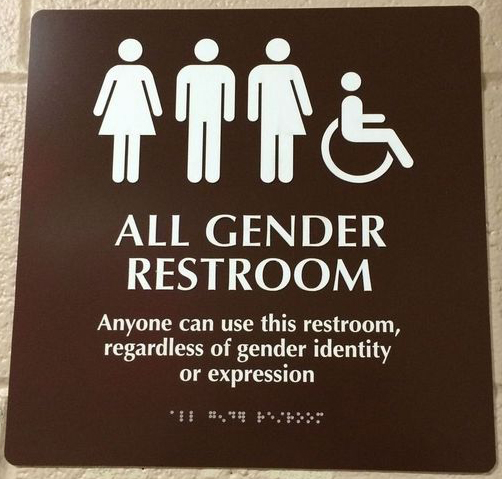The Southern Baptist Convention joined Catholic, Jewish, Mormon and other religious groups in a recent brief asking the U.S. Supreme Court to reverse a lower court decision allowing transgender students in public schools to use the restroom of their choice instead of the one corresponding to their biological sex at birth.
The Jan. 10 amicus brief by groups including the SBC Ethics and Religious Liberty Commission claims the Obama administration’s interpretation of laws banning discrimination on the basis of sex sets up potential “serious conflicts with religious liberty.”
 The brief asks the Supreme Court to reverse a 2016 decision by the Fourth U.S. Circuit Court of Appeals that a Virginia school district unlawfully discriminated against a transgender student by barring him access to the boy’s restroom at his high school.
The brief asks the Supreme Court to reverse a 2016 decision by the Fourth U.S. Circuit Court of Appeals that a Virginia school district unlawfully discriminated against a transgender student by barring him access to the boy’s restroom at his high school.
The appellate court agreed with the Department of Education’s interpretation of Title IX, a federal law barring discrimination on the basis of sex, in a guidance letter advising that when a school elects to separate or treat students differently on the basis of sex, it “generally must treat transgender students consistent with their gender identity” if it differs from their biological sex.
The religious organizations say unilaterally declaring “sex” to mean “gender identity” in regulations accompanying education funding will create political pressure to apply the same standard to laws that bar discrimination in employment and housing.
If that happens, the brief argues, religious colleges and universities would have problems maintaining sex-specific dormitories and other residences. “Housing applicants or tenants with gender identity issues could sue religious schools and colleges even if refusing to admit a person to single-sex housing were required by long-held religious standards,” the brief claims.
It would “also cast doubt on the authority of religious employers to govern their workplaces — even at a denomination’s headquarters” — if they establish religious standards as conditions of employment.
“An employee asserting a nonconforming gender identity could bring a claim challenging an employer’s enforcement of moral conduct standards regarding gender,” the faith groups contend. “Even unsound claims concerning religious employment standards would chill a religious organization’s decisions concerning internal governance.”
The 43-page documents cites religious teaching of the various groups, including the Baptist Faith and Message adopted by the Southern Baptist Convention in 2000 and a resolution passed in 2014 opposing cross-sex hormone therapy, gender reassignment surgery and efforts by the government to validate transgender identity “as morally praiseworthy.”
Other organizations joining the brief are the United States Conference of Catholic Bishops, Union of Orthodox Jewish Congregations of America, National Association of Evangelicals, Church of Jesus Christ of Latter-day Saints, Lutheran Church-Missouri Synod and Christian Legal Society.
Previous story:
Baptist minister unlikely advocate for transgender community
